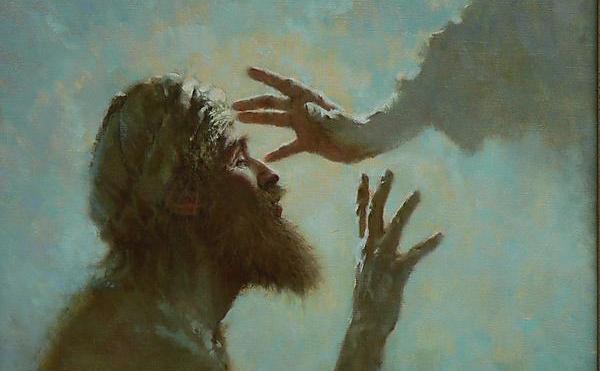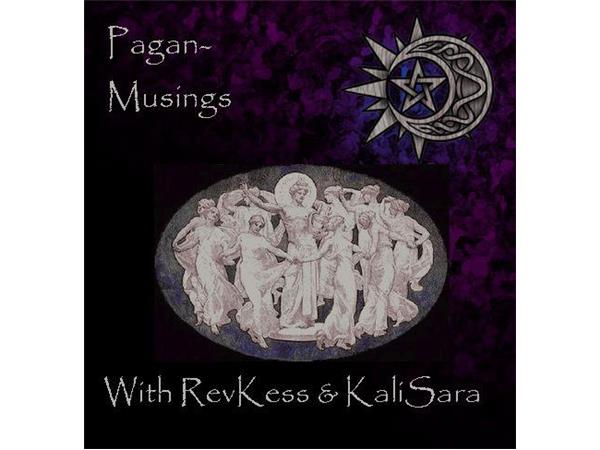“The LORD has not given you a heart to know, nor eyes to see, nor ears to hear”
We recently had the Mormon missionaries over to our house for dinner. My wife is Mormon, and feeding the missionaries is something Mormons are expected to do. And my wife and I enjoy it, because we were both missionaries at one time, and we like returning the favor. It is the practice of the missionaries to leave a spiritual message with the family after dinner. Usually, the message is innocuous enough. However, this time, there seemed to me to be a lot of “beware the Devil” in the message and it got my hackles up. And somehow it turned into a debate about “miracles” — by which the missionaries meant things like God answering your prayer to find your phone. I was a little antagonistic and not the best host, I admit. The missionaries maintained their composure, but one of them concluded (somewhat passive aggressively, I think) by advising us that we would see the same miracles if we looked at the world “with spiritual eyes” — the implication being that I was “spiritually blind”.
This comment reminded me of something that Ian Corrigan wrote recently, in response to the controversy over whether “atheist Pagan” is an oxymoron. One thing in particular that Ian wrote stood out to me, because I hear it a lot from theistic Pagans: the idea that atheists are like “tone-deaf” people. Ian wrote:
“Atheism arises naturally in certain minds, and enters others by conviction. I associate it with other human specifics such as tone-deafness. Even tone-deaf people can participate in music by well-planned charts and by experience. Thus I’m willing to assume that folks who simply don’t perceive the spiritual intelligences of nature (or who have rationalized that perception away) can participate in religion to their own benefit.”
I have heard this kind of statement from many theists (mono- and poly-). I believe it is often intended (as I’m sure it was in Ian’s case), not as an insult, but actually as an attempt to defuse conflict. But, I can tell you, I am a little insulted, as such statements imply that atheists are constitutionally incapable of seeing what is there to be seen. In fact, I think it’s inaccurate to assume that atheists don’t see what theists do. My Goddess may be blind, but I am not.
Atheists have religious experiences too
Having said that, I think many atheists — including atheist Pagans — unwittingly play into this misperception when they make their case on the basis of reason and scientific evidence alone. What this leaves out is personal, subjective experience — as John Beckett recently observed in his essay “Religion and Smart People”. And as a result, theists (mono- and poly-) feel like they have a corner on religious experience. Personally, I would find many atheists’ arguments much more persuasive, not less, if they started, not with science, but with their own personal experience. Listening to many atheists, one would think they’ve never had a religious experience in their lives. This may be true in some cases, but it is absolutely not true for many other atheists. In fact — and some theists may find this shocking — some atheists have had experiences which are very similar, if not identical, to those of theists — they have just come to different conclusions about those experiences.
I am speaking from personal experience, here. I used to be a theist, albeit of the mono- variety. Some of my most profound religious experiences occurred when I was Mormon. I even had an experience of being saved by Jesus. One experience in particular that stands out to me occurred during my 2-year mission in Brazil. It followed a period of feeling directionless in my mission and a lot of praying. It’s difficult to describe, but as I walked down a cobblestone street in northeast Brazil one hot day, the world around me seemed to change, while also staying the same. I was still in the present, but I felt like I was somehow also simultaneously back in 1st century Palestine as an early Christian missionary. It sounds absurd, but the verisimilitude of the experience was so profound that I was reduced to tears when it finally passed. I picked this experience to share because of its specifically Christian character. Now that I am Pagan, and an atheist Pagan at that, what do I do with this experience and others like it? Do I discard them as mere fantasies or delusions? Do I “rationalize them away”, as Ian said. No, absolutely not. They remain some of the most important experiences of my life. I just understand them differently than I did at the time.
 As the author of the essay, “Religious people are wrong (and so are most atheists)”, recently wrote: “When a person finds a state of perfect bliss and contentment after hours spent praying to Jesus, it’s easy to understand how she might interpret this as evidence of the divinity of Christ and the truth of Christian doctrine.” But the truth is that “practitioners of different religions report near-identical experiences despite engaging in wildly different rituals and praying to different gods”. This means that a Christian religious experience can be understood outside of a Christian context. Likewise, any theistic religious experience can also be interpreted as having meaning from an atheistic religious perspective. That is how I now understand the experiences I had while I was a Christian. At the time, they seemed like evidence for the reality of Jesus. Now they seem like evidence for the reality of … perhaps a dimension of human experience which has not been adequately explained by science, but not all that different from experiences that a Buddhist or Pagan or an atheist might have.
As the author of the essay, “Religious people are wrong (and so are most atheists)”, recently wrote: “When a person finds a state of perfect bliss and contentment after hours spent praying to Jesus, it’s easy to understand how she might interpret this as evidence of the divinity of Christ and the truth of Christian doctrine.” But the truth is that “practitioners of different religions report near-identical experiences despite engaging in wildly different rituals and praying to different gods”. This means that a Christian religious experience can be understood outside of a Christian context. Likewise, any theistic religious experience can also be interpreted as having meaning from an atheistic religious perspective. That is how I now understand the experiences I had while I was a Christian. At the time, they seemed like evidence for the reality of Jesus. Now they seem like evidence for the reality of … perhaps a dimension of human experience which has not been adequately explained by science, but not all that different from experiences that a Buddhist or Pagan or an atheist might have.
Bringing it down to earth
I know some polytheistic Pagans who will balk at the suggestion that I, or any atheistic Pagan, has had religious experiences similar to their own. I myself wondered about this until I began reading responses to Galina Krasskova’s “Devotional Polytheist Meme” project. Last year, Krasskova invited fellow polytheists to respond to certain questions about the nature of their interaction with their gods, questions like “What are some of the ways that you communicate with the divinities?” and “What does it feel like when one receives inspiration from the divinities?” A lot of Krasskova’s own writing about her god is what I would call “poetic” or even “hyperbolic”, which can be an effective way to convey the feeling of powerful spiritual experiences. Consider the beautiful passage below:
“He breaks open the head. All Gods do, I suspect. They wind Their way into our hearts, They seep into the fissures in our minds, They expand. They fracture us. They break us down. I have been a thousand broken shards lying in a glittering pile at His feet. I have been an anguished scream echoing in a heart too weary to loose its pain. I have been on fire, joyous, a madwoman dancing, leaping through the charnel House of a dozen savage worlds.”
 But describing religious experience in such poetic terms can muddy the waters when trying to communicate with someone of a different religious tradition, theistic or non-. It can create the impression (intended or not) that one’s religious experiences are incommensurable, when perhaps they really are not. Similarly, speaking in very literalistic terms about communicating with the gods can be misleading to outsiders when the actual communication was not so literal, as Joshua Tenpenny has explained:
But describing religious experience in such poetic terms can muddy the waters when trying to communicate with someone of a different religious tradition, theistic or non-. It can create the impression (intended or not) that one’s religious experiences are incommensurable, when perhaps they really are not. Similarly, speaking in very literalistic terms about communicating with the gods can be misleading to outsiders when the actual communication was not so literal, as Joshua Tenpenny has explained:
‘Most of the hard polytheists I know have a habit of talking about our communication with gods in very literal ways. “Aphrodite asked me to buy her flowers.” “Odin told me I needed to find a new job.” The exact behind-the-scenes mechanics of this vary widely person to person, and I think there is a general sense that the mechanism is not so important. If you are talking to someone who doesn’t believe all this, they want to know precisely what level of implausibility are you claiming, so it is super important to them that you clearly differentiate between, “I had a full-sensory waking vision of Apollo, where I literally heard-with-my-ears him speaking the words, ‘It is time for you to move to Chicago.’ ” and “I have been looking for a new apartment, and when I looked at the listings for Chicago, I strongly felt the hard-to-define feeling that I associate with Apollo, along with a feeling of urgency I had not previously had with regard to this move.” Basically, they want to know whether you are a Grade-A Nutter, or just someone who bizarrely chooses to interpret normal life situations in some kind of weird religious context.’
The varieties of religious experience
Which is why I really appreciated Krasskova’s and others’ responses to her “Devotional Polytheist Meme”. For the most part, the responses were very down-to-earth. In fact, I was surprised how relatable they were. And the more I read, the more familiar they sounded:
“… I think most of us with consistent devotion, possess the capacity to communicate in some way. It just may not be hearing Them in conversation or visions. Maybe instead, it’s a quiet knowing. Maybe it’s three or four omens following one after another that gives you the answer you were seeking, maybe it’s an inner sense of connection. Communication can occur in many ways.”
“For me, I usually just talk to Them. I pray regularly but i also converse throughout the day. I try to spend regular time, consistently, at my shrines praying and meditating.”
“I talk to them, sometimes out loud, sometimes silently in my head. I rarely get any kind of clear response, but I feel listened to. Sometimes I get an emotional impression of a response to something I’ve said. … Sometimes a random thing will catch my eye and symbolically communicate a message to me …”
“Occasionally, I’ll get an idea that doesn’t feel like it is my idea, and often it feels much more certain than I generally am about my own ideas. Sometimes I am puzzling over a problem and the answer comes to me suddenly, but the internal monologue doesn’t sound like it is my idea. … Sometimes there is a sudden idea that isn’t obviously not-mine when taken out of context, but it is about a deity or in response to a direct question to a deity, so I tend to give it the benefit of the doubt and assume it is from that deity unless there is something suspicious about it.
“On two occasions – both related to initiations – I have had vivid dreams about gods.”
“I’ve also had life coincidences line up very neatly after speaking with a deity, and felt like that was my “response”.”
“Replies come in many forms: Signs … Silence … Insight: On rare occasion, I will have a full-blown message pop directly into my head while performing devotions.”
“I also get ideas, lots of ideas, more ideas of my own than inspiration from outside of myself. And again, discerning one from the other is not always easy, but it’s also not always necessary.”
“I just kind of talk stuff out.”
“I talk to them. Divine via tarot, oracles. I scry flames. I listen to my intuition.”
“… when I’m well and centred and on top of my practice, I find it quite easy to hear the Gods directly, either in words or clear impressions (sound, flashes of vision, temperature, colour, emotion).”
“I’ve had precisely one dream in which a deity has appeared, and perhaps two more that were significant and heavy and clearly carried a message from a God.”
“.. the infamous Voices In My Head! To be clear, this is almost never in the form of audio hallucination levels of voice. I don’t hear the gods in any kind of literal sense the vast majority of the time. Rather, when doing a reading, meditating, crafting, driving, walking down the street, having lunch, stopping to smell the roses, and otherwise generally going about with my every day life, I’ll “hear” a narrative voice say something mostly-linguistic with a strong side of emote … The question then, of course, is how do I know it’s not just me talking to myself? Well, sometimes I don’t know that for sure.”
“For me, it is a thought that never goes away. Like a lead weight or the proverbial ribbon tied to a finger that one can’t remove until the task is done.”
Or consider this from Judith O-Grady’s God-Speaking: “I speak to the Gods and They speak to me (if They choose), a process I call ‘God-Speaking’. Although the process is less like a telephone conversation and more like a series of prickly feelings and insistent near-insights that ends with conviction rather than understanding.”
There were a few mentions that I found of sensory experiences of what seemed to be an immaterial presence or person, but they were far, far more rare than the more mundane kind of communications described above. Tenpenny, for example, explained, “How I perceive their responses is kind of confusing, and kind of vague. If I hadn’t had a few really vivid undeniable experiences, all the other experiences combined would not give me sufficient reason to believe that any of it was real.” And I think this is key, to appreciate that religious experiences do not occur in a vacuum; they are always interpreted from within the context of one’s personal history and culture (including atheists’ experiences). Thus, a Christian and a Buddhist and an atheist may have nearly-identical experiences, but one of them will say the saw Jesus and the second will say they saw Buddha and the third will say they saw … “something”. The historically and culturally contingent nature of our religious experiences does not invalidate them — in fact, it is what gives them their meaning for us. But it may create the illusion that our religious experiences more dissimilar than they really are.
Being an atheist doesn’t make me deaf to the gods
 What I find remarkable about the descriptions of the experiences of the polytheists above is their similarity to the descriptions of divine communication that I have heard from Mormons and other Christians. In fact, I myself have had most, if not all, of these kinds of experiences myself, when I was a Christian: from the “voice in the head” to dreams to intuitions and synchronistic “signs”. And I don’t think I am alone among atheists in this regard. Rather than dismissing these experiences as delusions, they remain meaningful to me, even when view from an atheistic interpretive framework.
What I find remarkable about the descriptions of the experiences of the polytheists above is their similarity to the descriptions of divine communication that I have heard from Mormons and other Christians. In fact, I myself have had most, if not all, of these kinds of experiences myself, when I was a Christian: from the “voice in the head” to dreams to intuitions and synchronistic “signs”. And I don’t think I am alone among atheists in this regard. Rather than dismissing these experiences as delusions, they remain meaningful to me, even when view from an atheistic interpretive framework.
Admittedly, since becoming an atheist, the nature of my spiritual experiences has changed. I haven’t had so many of the kinds of experiences described above since becoming an atheist, but I believe that is only because I have not sought them out. Mostly now I seek out different kinds of religious experiences, especially experiences of of what I call the “sublimity” of nature … because that’s what I feel I need now. I don’t feel like I need that sense of personal intervention from without, so much as a feeling of deeper connection to the world around me. That’s what I look for, and that’s what I find. (Consider Ryan Bell, a former pastor who became an atheist after “living a year without God”, and who, I have little doubt, would become a theist again after “living a year with God”.)
But that’s not to say that I am incapable of having other kinds of experiences. In fact, a few weeks ago, I decided to pray for direction, asking “the Goddess” for help, regarding a dilemma I had been seemingly unable to resolve by myself. I prayed to Her like she was a person, talking to her, and waiting for an answer, in spite of the fact that I don’t believe the Goddess is anything other than the whole material Universe itself, and the fact that I don’t think she “hears” prayers or grants wishes. Nevertheless I got an “answer”, and finally found the power to solve my problem. And I wasn’t surprised. It was what I had come to expect from years of being a theist. It demonstrates that those kinds of religious experience are not dependent on belief. And it also showed that being an atheist does not make me blind or deaf to the “gods”.
















